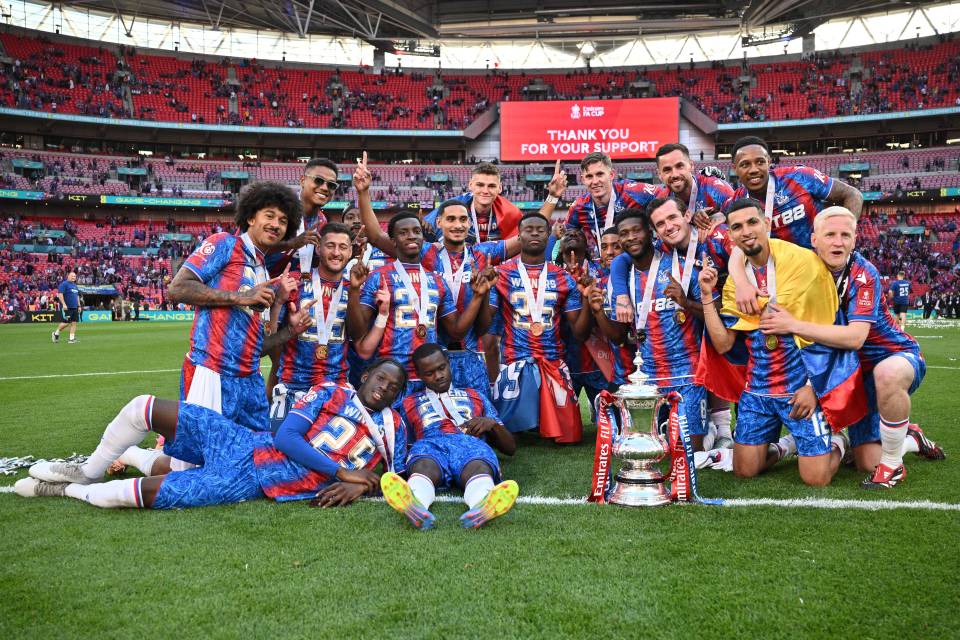Crystal Palace have been dropped from the Europa League to the Conference League after UEFA ruled they breached multi-club ownership rules. Learn the full story, the financial impact, and what it means for Nottingham Forest.
Crystal Palace Demoted from Europa League After UEFA Rules on Multi-Club Ownership Breach

In a dramatic turn of events, Crystal Palace have been officially demoted from the 2025–26 UEFA Europa League to the Europa Conference League. The ruling came after UEFA determined that the club violated its multi-club ownership rules, which are designed to preserve the integrity of European competitions.
The decision not only affects Palace’s upcoming season but also has major implications for Nottingham Forest, Olympique Lyonnais, and the broader landscape of multi-club football ownership.
What Led to the UEFA Sanction?
The issue stems from Eagle Football Holdings, an investment group led by John Textor, who holds significant stakes in both Crystal Palace and Olympique Lyonnais. UEFA regulations prevent clubs owned or controlled by the same entity from participating in the same European competition to avoid conflicts of interest.
Although Textor had agreed to step down from Lyon’s board and initiate the sale of his Palace shares to billionaire Woody Johnson, UEFA found that these changes were not completed before the critical March 1 compliance deadline. As such, both clubs were deemed to be in violation of the rules as of that date.
Why Palace, Not Lyon?
Interestingly, while both Crystal Palace and Lyon were found to be in breach, UEFA allowed Lyon to retain their Europa League spot, citing their sixth-place finish in Ligue 1. In contrast, Palace, who qualified for the Europa League by winning the FA Cup, were pushed down to the UEFA Conference League because of their 12th-place finish in the Premier League.
This strategic differentiation by UEFA underscores how league positioning can influence the outcome in multi-club cases.
Nottingham Forest’s Unexpected Boost
Perhaps the biggest beneficiary of the decision is Nottingham Forest, who finished seventh in the Premier League. If Crystal Palace’s appeal fails, Forest will take their Europa League place—a development worth an estimated £3.9 million in UEFA prize money alone.
Forest fans now await confirmation from UEFA as the final documentation is reviewed.
Palace’s Response and Legal Challenge
Crystal Palace have vowed to appeal the decision to the Court of Arbitration for Sport (CAS). The club insists that John Textor had no day-to-day influence over football operations at Selhurst Park, including key decisions like the hiring of manager Oliver Glasner.
Club sources have provided UEFA with documentation detailing this operational separation, but the timing of compliance actions remains the sticking point.
Broader Impact of UEFA’s Decision
UEFA’s ruling is a powerful message to multi-club ownership models, which are becoming increasingly common in European football. It also marks one of the first high-profile cases under UEFA’s tightened ownership regulations, reinforcing the organization’s intent to maintain competitive fairness.
This decision may influence how football investors manage stakes across clubs, particularly as UEFA continues to investigate other potential conflicts involving elite European teams.
What Happens Next?
If Palace’s appeal to CAS is unsuccessful, they will begin their European campaign in the Conference League play-off round in August. Meanwhile, Nottingham Forest will enter the Europa League group stage.
The case also sets a precedent that could affect other ownership structures, including those involving Red Bull (RB Leipzig and Salzburg), City Football Group (Manchester City and others), and others with broad football portfolios.
Final Thoughts
The demotion of Crystal Palace from the UEFA Europa League to the Conference League is a significant moment in the evolving narrative of football governance. While Palace prepares a legal battle to reclaim their spot, UEFA has made it clear that multi-club ownership structures must act swiftly and transparently to comply with continental competition rules.
Whether this is a one-off or the first of many similar rulings, one thing is certain: the era of passive multi-club control is over. European football’s governing bodies are watching closely—and acting decisively.
